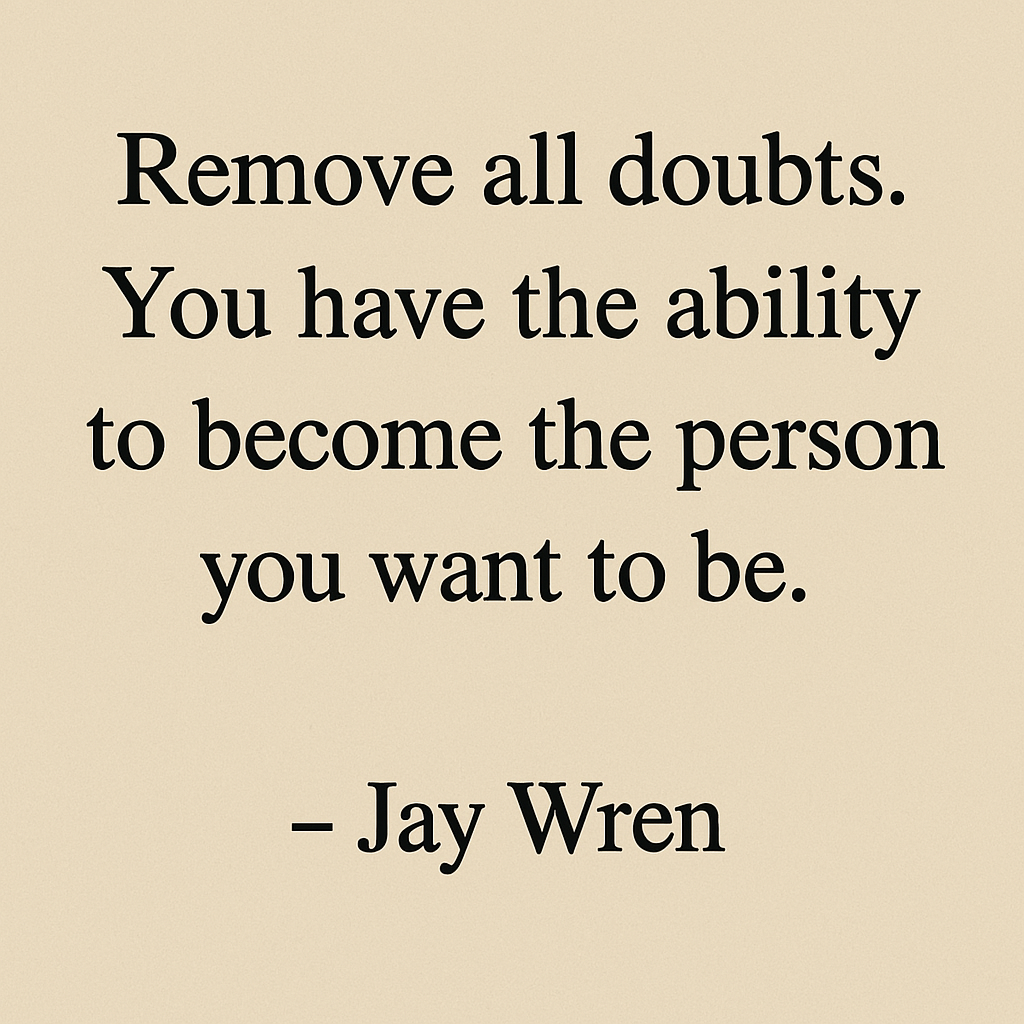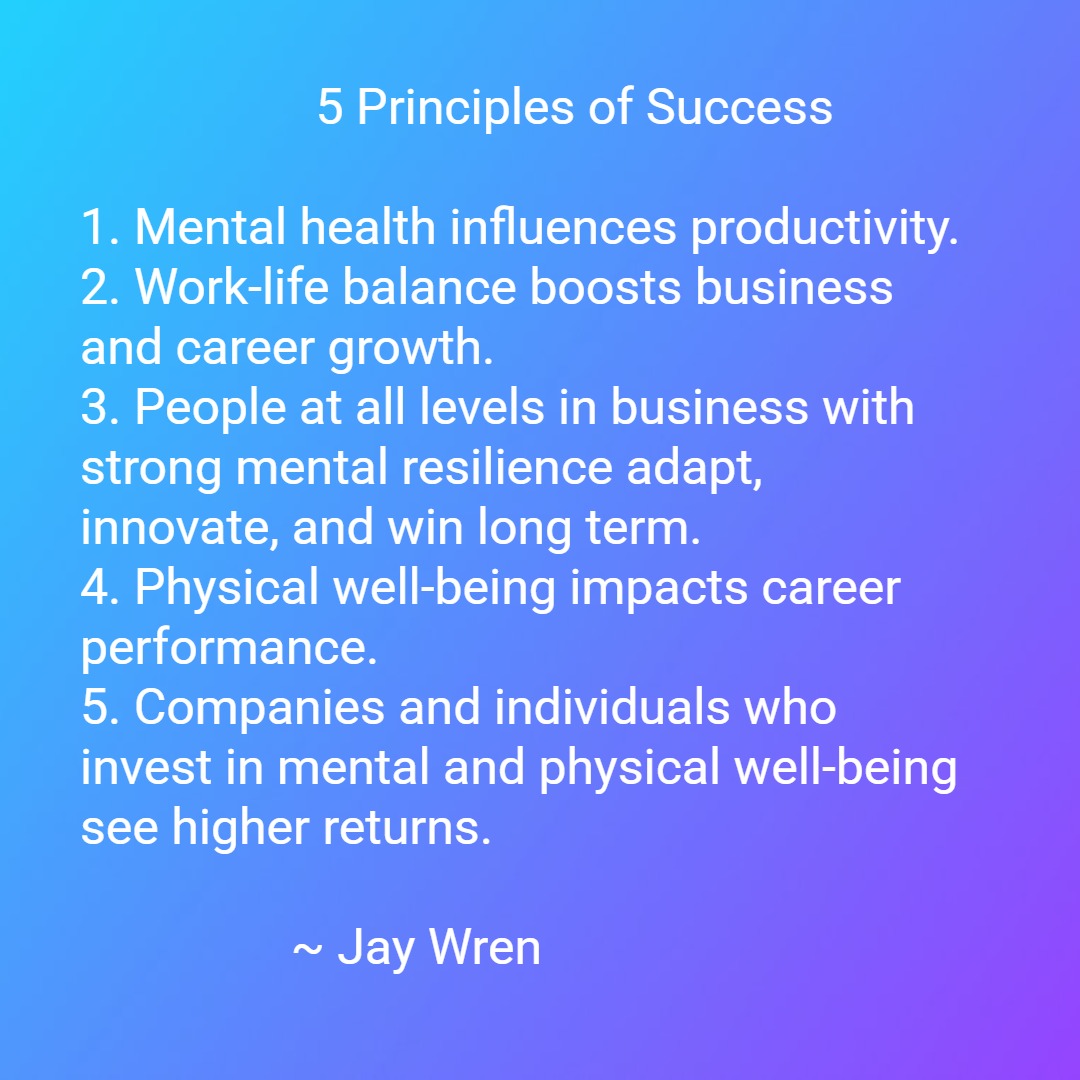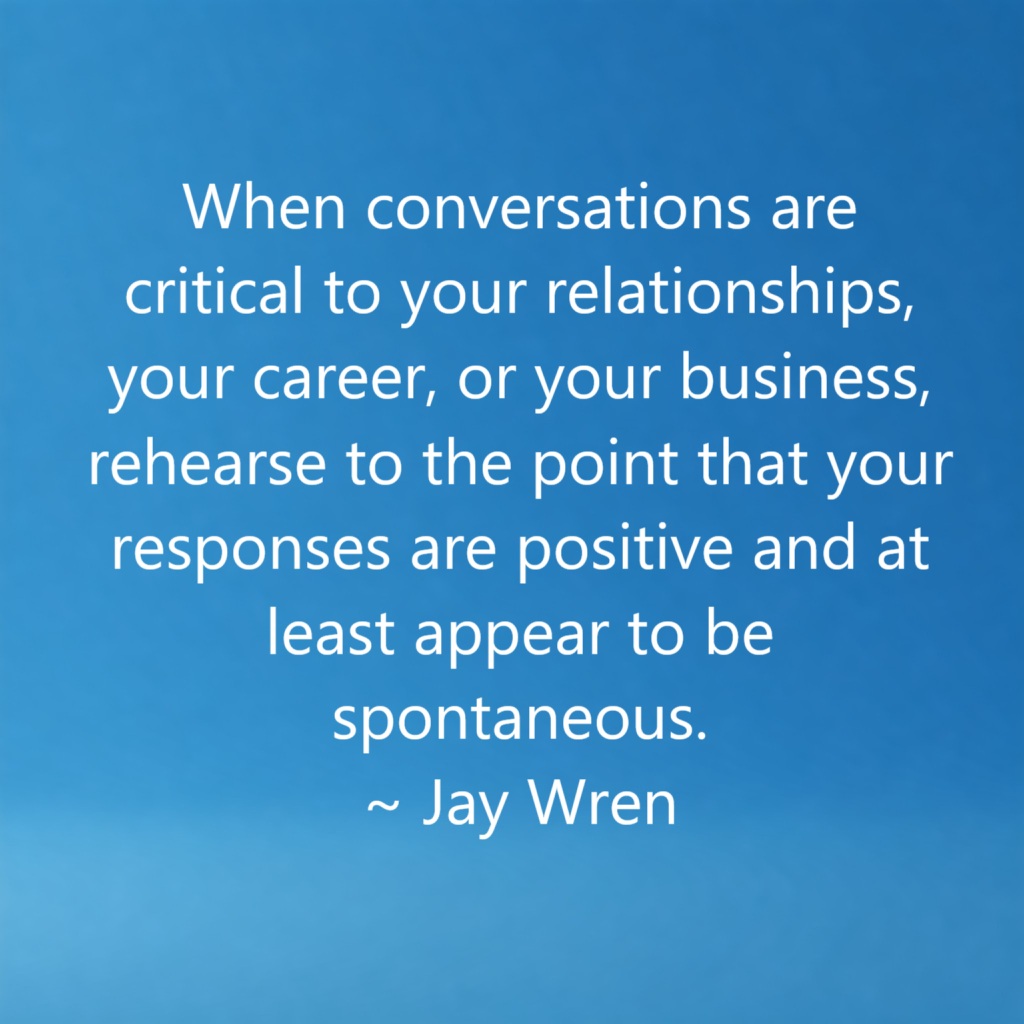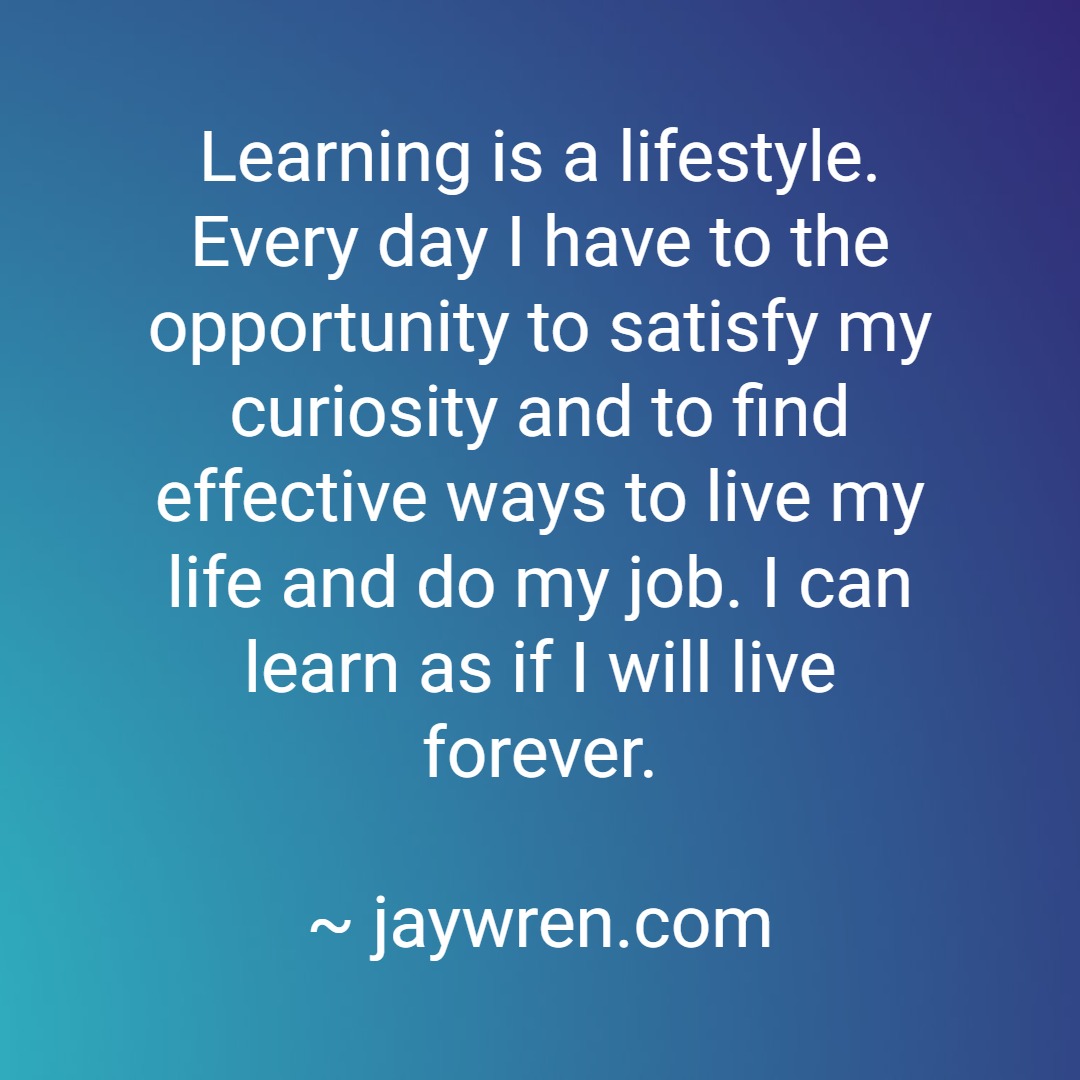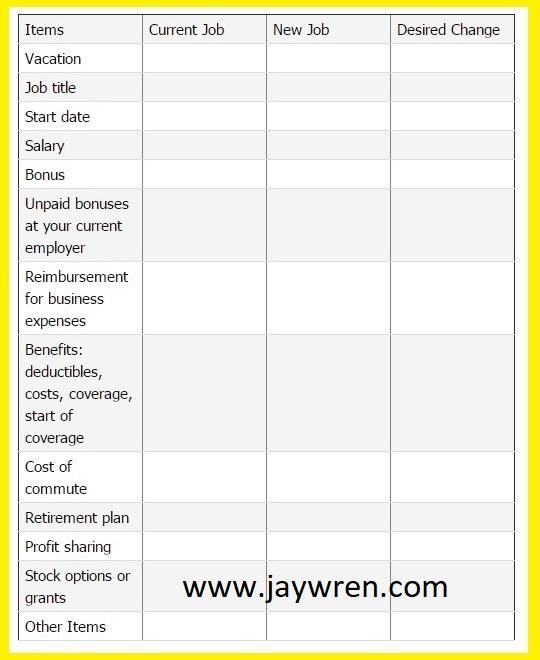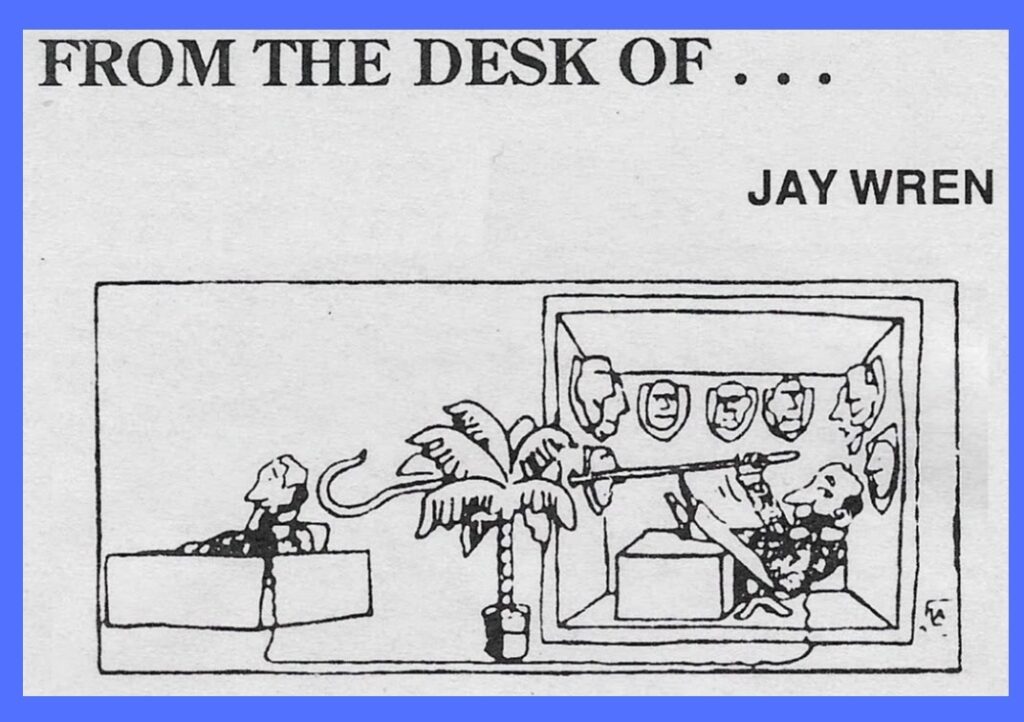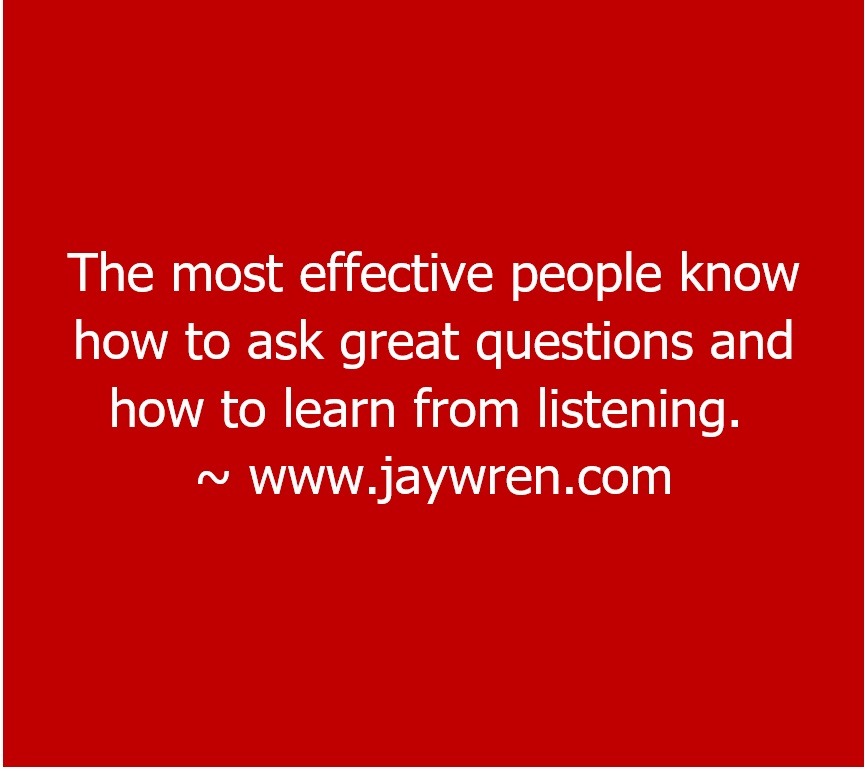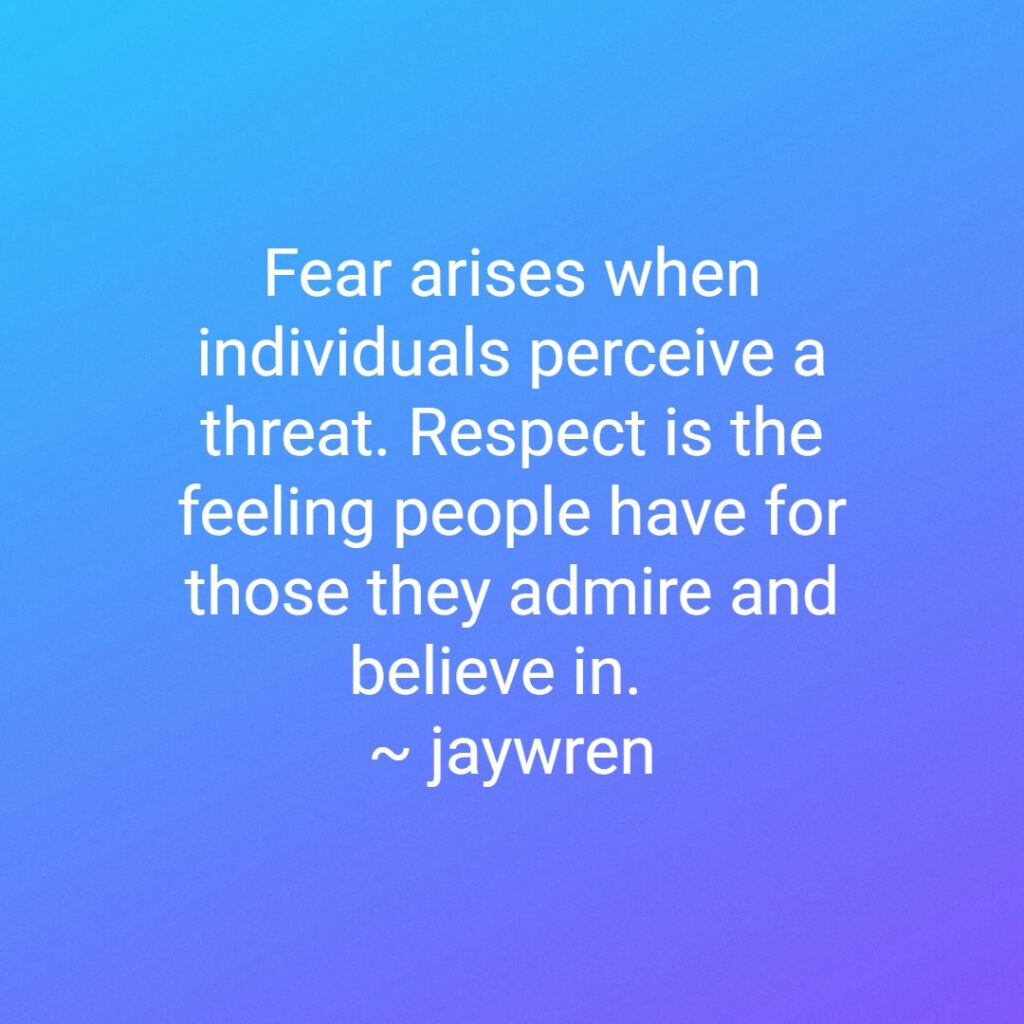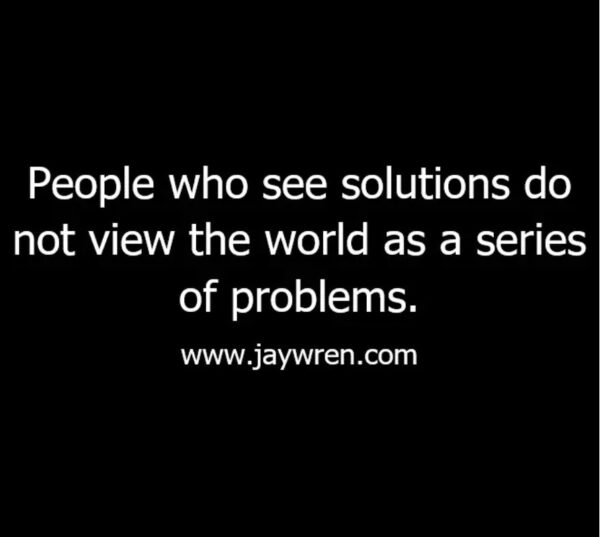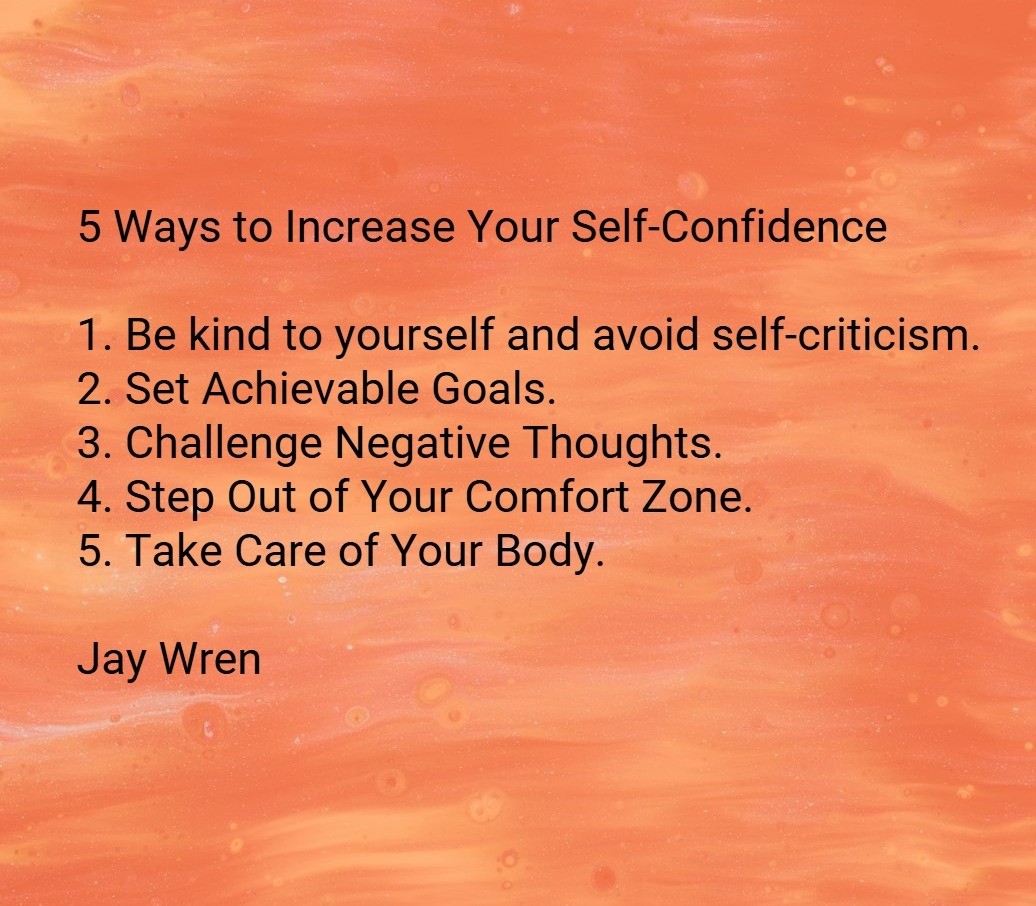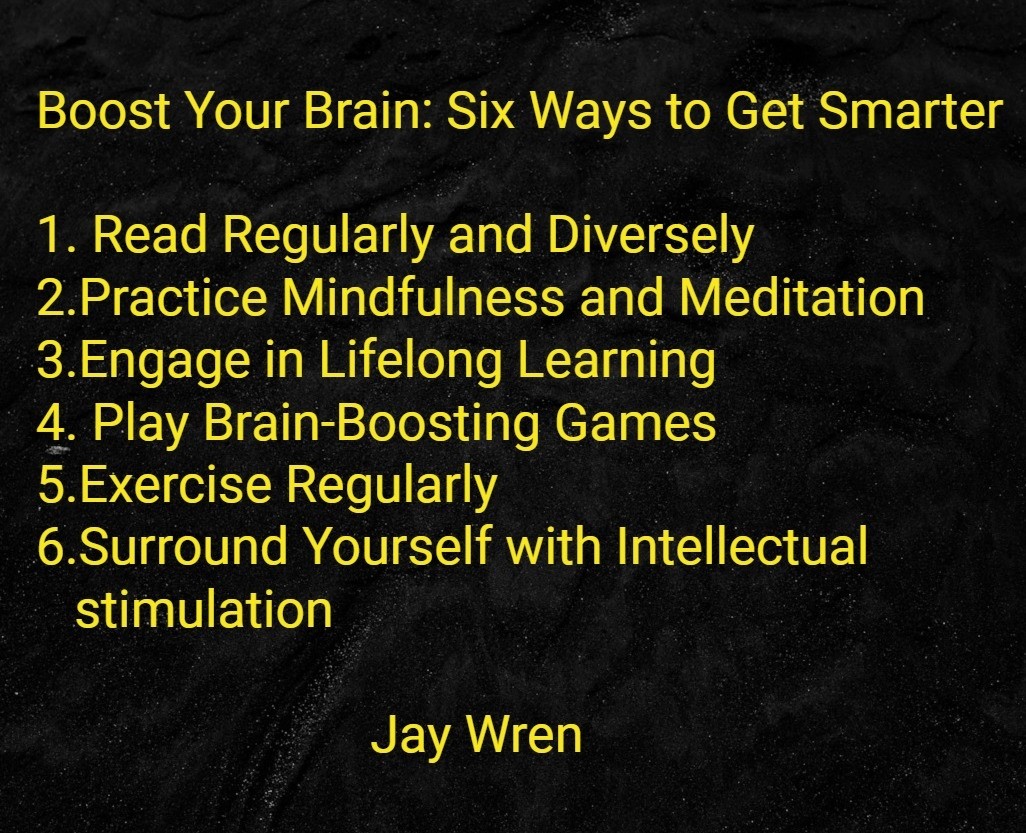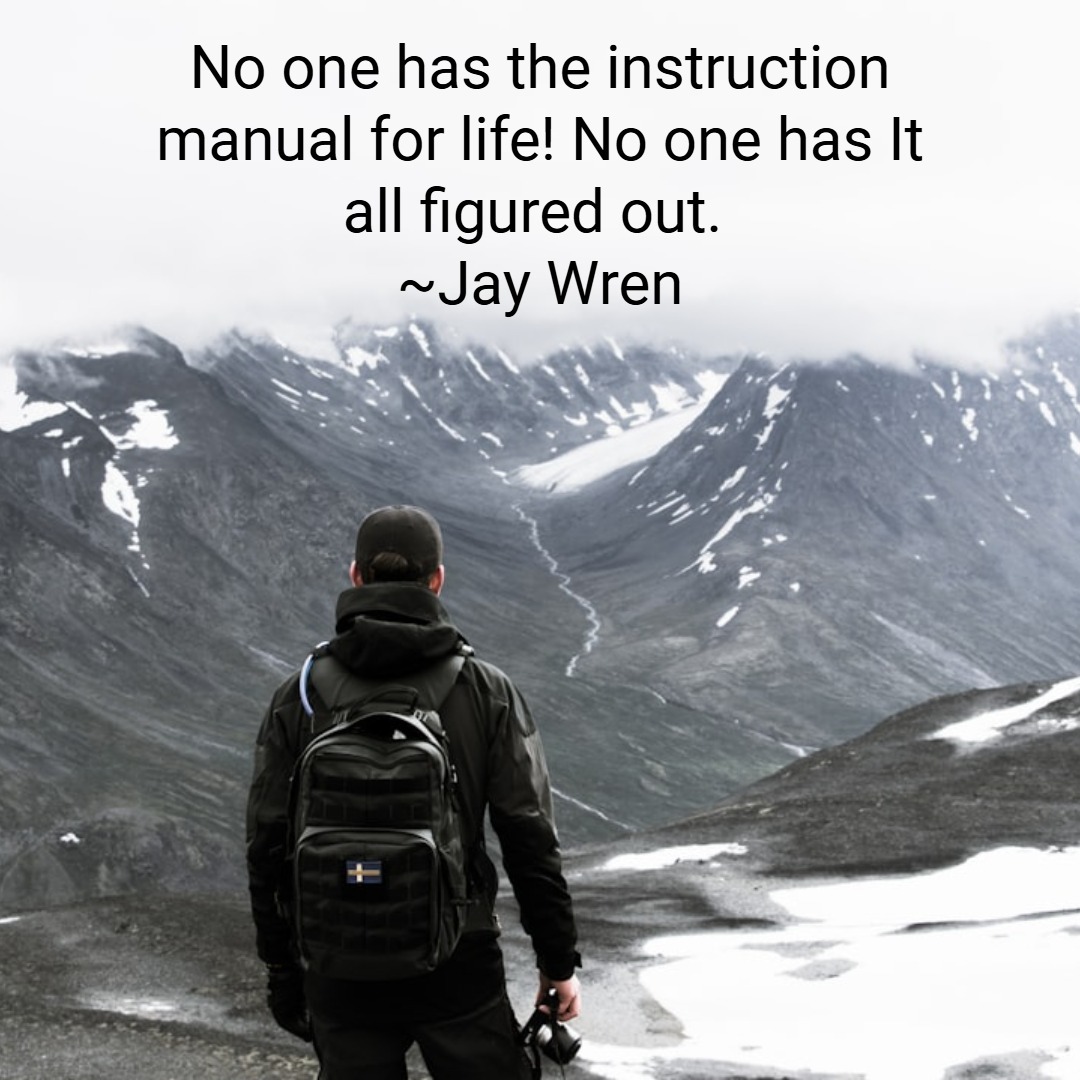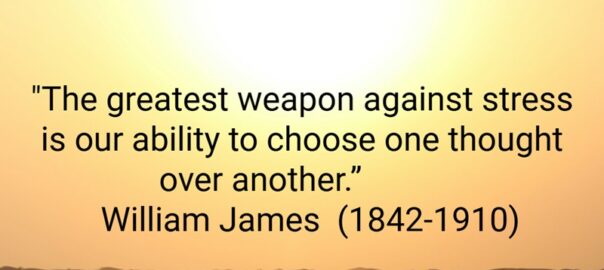No matter how intelligent or talented you are, without the right mindset, you will never be in the top 1%. ~ Jay Wren As a contract recruiter, I’ve noticed something interesting about top performers: they suddenly pull far ahead of everyone else. These people share a distinct way of thinking – a mindset for success.…… Continue reading Ten Mindset Skills that Will Put You in the Top 1%
Make Every day the best day in the year.
‘Write it on your heart that every day is the best day in the year. He is rich who owns the day, and no one owns the day who allows it to be invaded with fret and anxiety. Finish every day and be done with it. You have done what you could. Some blunders and…… Continue reading Make Every day the best day in the year.
A New Chapter for Jay Wren: Elevating Your Complete/Comprehensive Growth
Unlocking your full potential means embracing growth in every aspect of your life. ~ Jay Wren A New Chapter for Jay Wren: Elevating Your Complete/Comprehensive: Growth Hey everyone, I’m incredibly excited to share some significant news about the evolution of my website JayWren.com. For a while now, I’ve been reflecting on how to communicate the…… Continue reading A New Chapter for Jay Wren: Elevating Your Complete/Comprehensive Growth
Creating a Powerful Mind
It’s amazing how much power my mind holds over my life. The way I think shapes my reality, from how I feel to what I achieve. But here’s the good news: I’m not stuck with my current mindset. I can actually change what’s in my mind by actively choosing what I focus on, challenging negative…… Continue reading Creating a Powerful Mind
Self-Confidence: Getting to ‘You Got This!’
Get up every day and tell yourself, “You got this!” ~ Jay Wren Never sell yourself short. In order to lead, you need self-confidence. You must believe in your own abilities. Most people easily agree with certain principles. I am not a mathematician. We can all easily agree on that point. However, mathematics gives us a…… Continue reading Self-Confidence: Getting to ‘You Got This!’
Master Your Future: Adaptable Skills for a Dynamic Job Market
Master Your Future: Adaptable Skills for a Dynamic Job Market In today’s rapidly evolving job market, the ability to adapt your skills to multiple opportunities isn’t just an advantage—it’s a necessity. From English Major to Navy Officer and Business Professional: A Journey of Skill Adaptation My journey began with a clear academic path: pursuing master’s…… Continue reading Master Your Future: Adaptable Skills for a Dynamic Job Market
Building Resilience in the Face of Constant Change: My Personal Toolkit for Mental and Emotional Toughness
Resilience is a skill that can be learned and developed. You are strong. You can learn to bounce back and move ahead. — Jay Wren The old saying, “change is the only constant,” isn’t merely a phrase; it defines our lives. While change can be invigorating, it’s also deeply unsettling. How do we not just…… Continue reading Building Resilience in the Face of Constant Change: My Personal Toolkit for Mental and Emotional Toughness
10 Little Habits that Produce Huge Results
Simple Ways to Shine Standing out doesn’t require grand gestures or extraordinary talent. Often, the simplest habits make the biggest difference. Whether in your personal life or career, consistently showing up with the right mindset and actions can set you apart. Here’s how to shine in a straightforward way: Be on Time Punctuality is a…… Continue reading 10 Little Habits that Produce Huge Results
From Anxious to Articulate: Your Guide to Confident Communication
It’s completely normal to feel a bit anxious when you’re speaking in high-pressure situations. I’ve been there, and I’ve learned that with a few simple strategies, I can manage my nerves and communicate effectively. Focus on My Message, Not Reactions I’ve found it’s really easy to get caught up in how my audience is reacting,…… Continue reading From Anxious to Articulate: Your Guide to Confident Communication
For Local Jobs, Try Leading Local Newspapers
Links to leading newspapers. Akron Beacon Journal Albuquerque Journal Anchorage Daily News Aurora Sentinel Austin American Statesman Austin Chronicle azcentral The Atlanta Journal-Constitution Babylon Beacon Bakersfield.com Baltimore Post Examiner Baton Rouge Advocate Birmingham News Boise Idaho Statesman Boston Globe Buffalo News Burlington Free Press Charleston Gazette Charlotte Observer Chicago Sun Times Chicago Tribune Cincinnati Enquirer Cleveland Plain Dealer Newspaper Colorado Springs…… Continue reading For Local Jobs, Try Leading Local Newspapers
Believe in Yourself: The Power of Self-Trust
In a world that constantly bombards us with comparisons, expectations, and noise, the one thing we often forget to nurture is belief in ourselves. Yet, this simple act of believing in your own worth, potential, and direction is one of the most powerful forces behind personal growth and achievement. What Does It Mean to Believe…… Continue reading Believe in Yourself: The Power of Self-Trust
The Perilous Poles of Progress: How Uncertainty and Cockiness Derail Success
Success often feels like a tightrope walk, and at either end lie two gaping pitfalls: crippling uncertainty and blinding cockiness. These extremes, though seemingly opposite, share a common destructive power, leading individuals astray from their aspirations. True progress hinges on navigating this delicate balance, fostering confident action without succumbing to either paralyzing doubt or arrogant…… Continue reading The Perilous Poles of Progress: How Uncertainty and Cockiness Derail Success
Anxiety
“Our anxiety does not come from thinking about the future but from wanting to control it.” Khalil Gibran Anxiety doesn’t stem from future events, but rather from our attempts to control them. This concept is often explored in various psychological and philosophical frameworks, particularly those related to mindfulness, acceptance, and cognitive behavioral therapy (CBT). Here…… Continue reading Anxiety
How to Overcome Insecurity and Build Confidence
Everyone feels insecure sometimes. It’s normal! But insecurity can make life harder. It can stop you from feeling good about yourself or doing things you want to do. The good news is you can turn insecurity into confidence. Here’s how. Types of Insecurity There are many kinds of insecurity. Here are some common ones: Social…… Continue reading How to Overcome Insecurity and Build Confidence
You Have the Ability to Become the Person You Want to Be
Consider the incredible complexity of the human brain. It’s estimated to have around 86 billion neurons, each forming thousands of connections. This intricate network allows for consciousness, creativity, problem-solving, and the vast spectrum of human emotions. What’s truly inspiring is that this incredibly complex organ is constantly changing and adapting throughout your life. This phenomenon,…… Continue reading You Have the Ability to Become the Person You Want to Be
Don’t Hold Yourself Back from Enjoying Your Day
Maintaining a great attitude is an invaluable asset in my own life. It consistently fuels my productivity, strengthens my ability to interact with users, and helps me maintain a balanced and efficient workflow. But I’ve also learned that cultivating and sustaining a positive mindset requires very intentional effort. Here’s how I’ve come to understand and…… Continue reading Don’t Hold Yourself Back from Enjoying Your Day
My World is What I Believe It to Be
I’ve often found myself pondering a fundamental question: Why do some individuals navigate life with an unwavering sense of optimism, while others are seemingly mired in negativity and despair? Why do some relentlessly pursue and ultimately achieve their aspirations, while others readily abandon their dreams or settle for far less? And when faced with adversity,…… Continue reading My World is What I Believe It to Be
18 Ways to Work Less and Earn More
18 Ways to Work Less and Earn More Tired of the grind? You’re not alone. The dream of working fewer hours while increasing income isn’t just wishful thinking—it’s entirely possible with the right strategies. Here are 18 ways to make it happen. ~ Jay Wren Embrace Passive Income Invest in assets that generate income without…… Continue reading 18 Ways to Work Less and Earn More
Mastering Your Work: Ten Principles for Success
Do you ever wonder what sets truly effective people apart? They work hard, of course. However, all employees worth keeping on the payroll work hard. Mastering your work requires specific actions to make your work stand out from the work of the other people around you. Here are ten principles I follow to ensure my…… Continue reading Mastering Your Work: Ten Principles for Success
The Less I Say, The More I learn
Free your mind to listen and learn. ~ Jay Wren The Less I Say, The More I Learn: The Power of Listening in Sales and Trust-Building In a world where conversation often feels like a competition for airtime, the greatest communicators are often the quietest. Whether in sales, leadership, or personal relationships, the less you…… Continue reading The Less I Say, The More I learn
I Am Looking Forward to Today
Unleash the wonder! Give yourself permission to be utterly, breathtakingly amazing! ~ Jay Wren I Am Looking Forward to Today Today is a new day, full of possibilities and potential. I am excited to embrace all that it has to offer. There are many things I am looking forward to today. I am looking forward…… Continue reading I Am Looking Forward to Today
The Innovation Engine: Some of The Smartest Companies in the United States
The United States continues to be a global hub for innovation, with a dynamic landscape of companies pushing the boundaries of technology, healthcare, and sustainability. Identifying the “smartest” companies is a complex endeavor, as intelligence can be measured in various ways: groundbreaking research, prolific patenting, massive R&D investments, or disruptive market impact. However, a consistent…… Continue reading The Innovation Engine: Some of The Smartest Companies in the United States
Leadership Under Pressure
Have you ever noticed how simple everything becomes when you can become calm and clear my mind? ~ Jay Wren Crisis as a Tool Difficult managers use crisis as a management tool. Everything is serious. Everything is urgent. They shake everybody up. Old school football coaches were well-known for public sideline tirades. Nothing was ever…… Continue reading Leadership Under Pressure
The Wider View: Quotes to Broaden Your Mind
“Be more concerned with your character than your reputation, because your character is what you really are, while your reputation is merely what others think you are.” – John Wooden, UCLA basketball coach, winner of 10 national championships “Learn from the mistakes of others. You can’t live long enough to make them all yourself.” -…… Continue reading The Wider View: Quotes to Broaden Your Mind
When You Start to Panic, Do the Opposite of what Your Instincts Tell You to Do
You are strong and you are smart. When you start to panic, do the opposite of what your instincts tell you to do. Say to yourself, “I got this.” ~ Jay Wren Panic is a Thief Panic hijacks the nervous system, shifting the body into a heightened state of fight-or-flight. This is useful when escaping…… Continue reading When You Start to Panic, Do the Opposite of what Your Instincts Tell You to Do
Finding Your Footing When the Ground Feels Shaky
Just when you think you have a clear path ahead, an unexpected challenge or opportunity can suddenly appear, altering your course in surprising ways. We all face moments when the path ahead seems shrouded in fog, when the weight of our struggles feels almost unbearable. You’re navigating the complexities of family dynamics, feeling the strain…… Continue reading Finding Your Footing When the Ground Feels Shaky
Crafting the Perfect AI Prompts Made Simple
Crafting the Perfect AI Prompt: What to Include for Best Results AI models have revolutionized the way we generate content, solve problems, and brainstorm ideas. However, the quality of an AI-generated response largely depends on how well the prompt is structured. To maximize the effectiveness of an AI prompt, here are the key components to…… Continue reading Crafting the Perfect AI Prompts Made Simple
The Power of Adaptability: A Key to Mental and Emotional Well-being
You are adaptable. Where others see challenges as roadblocks, you see them as opportunities to adapt and grow. ~ Jay Wren Understanding Adaptability Adaptability is the capacity to adjust one’s thoughts, behaviors, and emotions in response to new situations. It involves embracing change with an open mind rather than resisting it. People who cultivate adaptability…… Continue reading The Power of Adaptability: A Key to Mental and Emotional Well-being
Self-Love and Affirmation
Have you told yourself today that you deserve to be loved? ~ Jay Wren Self-Love and Affirmation Each day is a new opportunity to remind ourselves of our intrinsic worth and the love we deserve. It is essential to practice self-affirmation, not just in moments of doubt, but as a regular part of our lives.…… Continue reading Self-Love and Affirmation
Nurturing Your Body, Mind, and Spirit
Treat your inner self with the purpose of nurturing your body, mind, and spirit, and cultivate gratitude to blossom into a life rich with wellbeing and happiness. ~ Jay Wren It’s easy to get caught up in the pursuit of daily achievements and disappointments, often overlooking the very foundation upon which a truly fulfilling life…… Continue reading Nurturing Your Body, Mind, and Spirit
Resumes Employers Will Want to Read
Working through stacks of resumes, hiring managers and recruiters spend just seconds on deciding whether to save you resume or delete it. Job seekers must know how to write resumes employers will want to read. ~ Jay Wren List things you have accomplished. Do not waste space on your just giving a job description. List…… Continue reading Resumes Employers Will Want to Read
Walter Mitty: Fictional Dreamer Turned Cultural Phenomenon
A little bit of day dreaming is good for your mind, body, emotions, and self-esteem. ~ Jay Wren The Enduring Legacy of Walter Mitty: Fictional Dreamer Turned Cultural Phenomenon Few fictional characters have permeated popular culture quite like Walter Mitty, the protagonist of James Thurber’s 1939 short story The Secret Life of Walter Mitty. Mitty,…… Continue reading Walter Mitty: Fictional Dreamer Turned Cultural Phenomenon
The 5 Principles of Business Success Through Mental and Physical Well Being
Mental health influences productivity – Studies show that employees with strong mental well-being are 13% more productive than those struggling with stress or burnout. Work-life balance boosts career growth – Successful professionals often prioritize personal wellness, knowing that balanced individuals make better leaders and decision-makers. Corporate executives and Entrepreneurs with strong mental resilience thrive –…… Continue reading The 5 Principles of Business Success Through Mental and Physical Well Being
Rehearse Spontaneous Answers
I know that using the word “rehearse” to describe the word “spontaneous” create a bit of an oxymoron. However, I find it helpful to have a pocketful full of little phrases to use when I am in a discussion that may involve disagreement or tension. For a couple of reasons, I need at least to…… Continue reading Rehearse Spontaneous Answers
I Can Learn as if I Will to Live Forever
Learning is a lifestyle. Every day I have to the opportunity to satisfy my curiosity and to find effective ways to live my life and do my job. I can learn as if I will live forever. ~ jaywren.com Learning is simple as staying curious and continuing to ask questions, simple questions like these: Is…… Continue reading I Can Learn as if I Will to Live Forever
Negotiating Job Offers: An Outline for Getting What You are Worth
Negotiating Job Offers: An Outline for Getting What You are Worth. Negotiating Job Offers: An Outline for Getting What You are Worth. The increase you get when you start a job compounds into thousands of dollars over time. Negotiating Job Offers: Begin with the Facts Employers are more open to negotiating a job offer when…… Continue reading Negotiating Job Offers: An Outline for Getting What You are Worth
Surprising Origins of Today’s Iconic Companies
Companies rise, fall, and pivot, often in response to changing market demands, technological advancements, or simply a flash of entrepreneurial inspiration. What’s truly fascinating is discovering the unrelated origins of some of today’s most recognizable brands. You might be surprised to learn that the tech giant in your pocket or the car in your driveway…… Continue reading Surprising Origins of Today’s Iconic Companies
Navigating Toxicity: Focusing on Your Inner Strength
You are resilient. You can shield yourself from the storm and emerge stronger once it passes. ~jaywren.com Dealing with toxic individuals can be incredibly challenging. When their behavior remains unchanged and avoidance isn’t an option, the most empowering and effective approach is to shift your focus inward. By concentrating on your own growth and well-being,…… Continue reading Navigating Toxicity: Focusing on Your Inner Strength
Get Our of Your Head and Into the Present Moment
Getting Stuck in the Thoughts in Our Head We replay old conversations, fret over deadlines, and endlessly scroll through social media, rarely giving our full attention to the present moment. However, cultivating the ability to be mentally present – to focus on the “now” – can have profound benefits for our mental and emotional well-being.…… Continue reading Get Our of Your Head and Into the Present Moment
Content Marketing: 6 Steps for Building a Large Audience
Six Powerful Strategies to Build a Large and Engaged Audience Expanding your reach and cultivating a loyal audience takes more than just posting content—it requires strategy, consistency, and engagement. Whether you’re a content creator, entrepreneur, or brand, these six essential tips will help you connect with more people and keep them coming back for more.…… Continue reading Content Marketing: 6 Steps for Building a Large Audience
Unlock Doors and Opportunities: The Power of Showing Up and Simply Asking
Unlock Doors and Opportunities: The Power of Showing Up and Simply Asking People can overcomplicate the path to success, searching for secret formulas and hidden strategies. Yet, two of life’s most profound lessons are surprisingly straightforward: show up and just ask. While seemingly simple, mastering these two principles can unlock doors you never imagined existed.…… Continue reading Unlock Doors and Opportunities: The Power of Showing Up and Simply Asking
Should I Rebrand my Business?
When I first opened my recruiting company, occasionally someone would ask me if I minded being called a “headhunter?” I saw in that question an opportunity to embrace the idea of being a headhunter. I incorporated the name into my introductions. I had the attached memo pad printed. When I sent people a handwritten note,…… Continue reading Should I Rebrand my Business?
Gemini and JayWren.com: A Story of AI-Powered Transformation
Introduction Please let me start with original content that I wrote for background on how I am using Gemini AI. Since I first started creating content and posting it on my website, I have worked alone. I didn’t know anyone I could discuss anything about building a website or what type of content would be…… Continue reading Gemini and JayWren.com: A Story of AI-Powered Transformation
The Skills Economy: Your Future is Forged in Learning
We live in a world of unprecedented change. Technology is evolving at warp speed, industries are being disrupted, and the very nature of work is transforming before our eyes. In this dynamic landscape, traditional credentials and static job descriptions are becoming less relevant. A new paradigm is emerging: the Skills Economy. In the Skills Economy,…… Continue reading The Skills Economy: Your Future is Forged in Learning
Listening and the Persuasive Power of Asking Questions
The most effective people know how to ask great questions and how to learn from listening. ~ www.jaywren.com Listening: What is the role of asking questions and listening in creating cooperation? Here are examples of how great questions lead you to getting what you want when you understand what other people need. In the Workplace,…… Continue reading Listening and the Persuasive Power of Asking Questions
Eliminating Stress: 7 Steps to a Smarter Way of Living
Dealing with stress is simple, but it is not always easy. ~ www.jaywren.com Life’s challenges create pressure. I can’t always control the world around me. However, I can reduce stress with my actions. Here are seven things I do. Procrastination I feel tremendous stress when I put things off. Also, thinking about doing a large…… Continue reading Eliminating Stress: 7 Steps to a Smarter Way of Living
Cracking the Code: How to Solve Puzzles and Create Solutions
I first ask myself, what is the fundamental puzzle I am trying to solve? Then I can crack the code and solve the puzzle. Not always, but at times, for me, life is a stream of puzzles waiting to be solved. Just for this article, I am going to use the word “puzzles” instead of…… Continue reading Cracking the Code: How to Solve Puzzles and Create Solutions
Adapt, Innovate, Win: The Fundamentals of Success Under Any Circumstances
Introduction Circumstances change, industries evolve, and what worked yesterday might not work today. The ability to adapt, innovate, and win in the face of these shifts is crucial. There are core fundamentals that enable individuals and organizations to thrive regardless of the circumstances. Embracing Change Change is the only constant. Resistance to change often leads…… Continue reading Adapt, Innovate, Win: The Fundamentals of Success Under Any Circumstances
Rub Some Dirt on It
In sports, when players get hurt during a game, coaches must make decisions whether the player should stay in a game after an injury are leave the game for the player’s safety. Is a player is hurt injured? Does the player risk further injury if they continue to play? If the player can continue to…… Continue reading Rub Some Dirt on It
Gaining Respect in the Workplace
Fear arises when individuals perceive a threat. Respect is the feeling people have for those they admire and believe in. ~ jaywren Fear is not equal to respect. Fear is what people say behind your back. Respect is what people say to your face. You can push people with fear. You can fight people with…… Continue reading Gaining Respect in the Workplace
How to Relax, Clear Your Mind, and Stop Overthinking
Relax. Clear your mind. Stop overthinking. With preparation and a clear mind you will know what to do when the time comes to act. ~ jaywren.com Overthinking has become an almost universal habit. We replay conversations, agonize over decisions, and analyze situations endlessly, often to the point of exhaustion. Overthinking not only drains our energy…… Continue reading How to Relax, Clear Your Mind, and Stop Overthinking
Vacations are About Quality Not Price
Taking breaks from work is crucial for both individual and employer benefits, including improved health, productivity, and well-being. The quality of a vacation is more about its effectiveness in allowing you to recharge and disconnect from work, rather than solely the amount of money spent. Entirely by accident, I did so many fun things for free…… Continue reading Vacations are About Quality Not Price
Because it Feels Good, I Focus on My Breathing Every Time I Think of It
Because it Feels Good, I Focus on My Breathing Every Time I Think of It. ~ Jay Wren I use breathing text for more than curing anxiety. Every time I think of focusing on my breathing, I take a breath and feel better. For me, anxiety can feel overwhelming. One of the most powerful tools…… Continue reading Because it Feels Good, I Focus on My Breathing Every Time I Think of It
The Power Cycle: Feeling Great Increases Success and Success Increases How Great We Feel ~ Jay Wren
The Power Cycle: Feeling Great Increases Success and Success Increases How Great We Feel ~ Jay Wren Have you ever noticed how good things seem to snowball? When you’re feeling on top of the world, it’s easier to tackle challenges, achieve goals, and maintain a positive outlook. This creates a powerful cycle: feeling great increases…… Continue reading The Power Cycle: Feeling Great Increases Success and Success Increases How Great We Feel ~ Jay Wren
How to Start a Personal Services Company: A Guide for Aspiring Entrepreneurs
How to Start a Personal Services Company: A Guide for Aspiring Entrepreneurs Starting your own personal services company can be a rewarding experience, offering flexibility, autonomy, and the chance to build a business that aligns with your passions. However, it also comes with unique challenges and considerations. Here’s a breakdown to help you navigate the…… Continue reading How to Start a Personal Services Company: A Guide for Aspiring Entrepreneurs
Breathe Easier: 5 Practical Ways to Declutter Your Life
Sometimes, all I need is a little simplicity, a little bit less of everything, to enjoy my life more. ~ jaywren.com It’s easy to accumulate *stuff*. Physical possessions, digital clutter, overwhelming schedules can all weigh us down, creating stress and hindering our ability to focus on what truly matters. If you’re feeling overwhelmed, it might…… Continue reading Breathe Easier: 5 Practical Ways to Declutter Your Life
New? Start Here
Welcome to Jaywren.com! If you’re visiting jaywren.com for the first time, I want to extend a warm welcome. I’m thrilled you’ve found your way here, and I’m excited to embark on this journey of growth and discovery with you. Think of jaywren.com as your go-to resource for creating a life that truly resonates with you,…… Continue reading New? Start Here
Wellbeing: Saying “Yes” to a Happier, Healthier Life!
Wellbeing: Achieving Joy in Life Through Physical, Mental, Emotional, and Spiritual Development People work on their wellbeing through a variety of practices that encompass physical, mental, emotional, social, and spiritual health. These areas are interconnected, and nurturing one often positively impacts others. Here’s a breakdown of common ways people work on their wellbeing: Physical Wellbeing…… Continue reading Wellbeing: Saying “Yes” to a Happier, Healthier Life!
The Power and Failings of Leadership: The Caine Mutiny
Leadership is a trait that can start from any place in an organization but usually starts at the top and runs throughout the entire organization. Great leaders create great organizations through picking and developing winning teams. Bad leaders can create failure in any organization. “The Caine Mutiny” is a novel about a commanding officer, Lieutenant…… Continue reading The Power and Failings of Leadership: The Caine Mutiny
Complete Guide for Writing the Perfect Resume
Working through stacks of resumes, hiring managers and recruiters only spend seconds deciding whether to save you resume or delete it. You need to know how to write resumes employers will want to read. The best resumes show why you are the most qualified candidate for the job. ~ www.jaywren.com Thirty Years of Reading Resumes I…… Continue reading Complete Guide for Writing the Perfect Resume
The Liberating Power of Forgiving Someone
Sometimes the greatest freedom comes from forgiving someone. ~ Jay Wren When I hold onto grudges, I essentially allow the past to control my peace of mind. Reliving anger leads to anxiety, depression, and strained relationships. Forgiveness, on the other hand, is a conscious decision I make to release the clutter of negative emotions and…… Continue reading The Liberating Power of Forgiving Someone
Top 10 U.S. Supermarket Chains
The Titans of the Aisles: Navigating the Landscape of the Top 10 US Supermarket Chains The American supermarket landscape is a dynamic and competitive arena, with a diverse array of players vying for consumers’ grocery dollars. From traditional supermarkets to membership-based warehouses and discount grocers, the choices available to shoppers are vast. As of early…… Continue reading Top 10 U.S. Supermarket Chains
Rear Admiral Pete “Viper” Pettigrew
I learned today that the docent on the USS Midway Museum who gave my family the presentation on carrier landings, Rear Admiral Pete “Viper” Pettigrew, passed away. He was the real life pilot who was the model for the character Viper in the movie “Top Gun.” He was so friendly. When I met him on…… Continue reading Rear Admiral Pete “Viper” Pettigrew
Dramatic Hiring Trends that You Must Know About
Hiring in 2025 is being shaped by several key trends, reflecting rapid technological advancements and evolving workplace priorities. Here’s a breakdown of what’s trending: Focus on Vocational Skills: The emphasis is shifting from traditional qualifications like degrees to what candidates can actually do. Skill-based hiring is becoming a primary focus. Companies are developing competency frameworks…… Continue reading Dramatic Hiring Trends that You Must Know About
The Nation’s Largest Brick-and-Mortar Retailers
Here are some of the nation’s largest brick-and-mortar retailers in the United States, generally ranked by revenue: Walmart: Consistently holds the top position with the highest revenue and a vast network of stores across the country. They offer a wide variety of products, from groceries to electronics and apparel. Costco Wholesale: A membership-based warehouse club…… Continue reading The Nation’s Largest Brick-and-Mortar Retailers
Emotional Intelligence: 12 Steps to Empowering Your Mind
Emotional Intelligence: Learning how to manage emotions is part of growing up. However, becoming aware that our feelings are making us dumber is not always easy. How do successful people deal with emotions to make better decisions? Developing Emotional Intelligence Although it is normal to have emotional highs and lows, successful people separate their emotions…… Continue reading Emotional Intelligence: 12 Steps to Empowering Your Mind
Words that Empower and Motivate Successful Teams
The words “we,” “our,” and “together” create bonds of ownership and commitment in a team. ~ Jay Wren Successful Teams: Words that empower and motivate teams create bonds among the team members. These words acknowledge ownership of responsibility. Furthermore, they show recognition of team member contributions. What are some of these words? Categories for Words that…… Continue reading Words that Empower and Motivate Successful Teams
Solutions: How Successful People See the World
Solutions: Viewing the world as a series of problems is discouraging, even scary. How can we change our outlook for greater success? People who see solutions do not view the world as a series of problems. ~ www.jaywren.com My Story When I was a Navy bridge officer on a carrier, I had a commanding officer who…… Continue reading Solutions: How Successful People See the World
How to Motivate Yourself to Stand Up and Walk Around
Sitting for extended periods can really take a toll on our bodies and minds. Here are some tips to motivate yourself to stand up and walk around more: Set Reminders: Technology is your friend: Use your phone or computer to set reminders to stand up and stretch every 30 minutes. Sticky notes: Place them on…… Continue reading How to Motivate Yourself to Stand Up and Walk Around
If You Can Keep Your Head When All About You Are Losing Theirs
Ultimately, Kipling suggests that embodying these traits leads not just to success but to the fulfillment of one’s potential as a human being. This poem resonates across generations because of its universal lessons on character and strength. “If you can keep your head when all about you Are losing theirs and blaming it on…… Continue reading If You Can Keep Your Head When All About You Are Losing Theirs
Never equate your self-worth with your success.
“Remember that failure is an event, not a person.” Zig Ziglar Never equate your self-worth with your success.
Courage to Continue
“Success is not final, failure is not fatal: it is the courage to continue that counts.” Winston Churchill Success is not final. Even repeating our actions does not guarantee success. As our circumstances change, the actions we need for success change. For nearly thirty years, I built a recruiting business based on using a telephone,…… Continue reading Courage to Continue
Eating Healthy Foods while Beating Inflation
I am not a nutritionist. I worked in grocery stores while I was in college. I also recruited for food manufacturers over 30 years. Consequently, I have spent decades reading about and working in the food industry. Inflation and Food Inflation has been a hot topic, especially when it comes to food prices. While many…… Continue reading Eating Healthy Foods while Beating Inflation
Happiness in a Controversial World
I wrote this post for my own mental and emotional well-being. Perhaps some of these suggestions will help you. Changing How I See and Feel About My World For me, the constant wave of negative news is overwhelming. I can take control of the information that I expose myself to with these steps: Curate My…… Continue reading Happiness in a Controversial World
Career Agility: Thriving in a Changing World
In today’s rapidly evolving job market, the concept of a linear career path is becoming increasingly obsolete. The rise of automation, globalization, and the gig economy has created a landscape where adaptability and resilience are paramount. This is where career agility comes into play. What is Career Agility? Career agility is the ability to adapt…… Continue reading Career Agility: Thriving in a Changing World
5 Ways to Increase Your Self-Confidence
You are capable of amazing things. Boosting your self-confidence can have a profound impact on various aspects of your life. Here are five practical strategies to help you get started: Practice Self-Compassion: Be kind to yourself and avoid self-criticism. Treat yourself with the same understanding and compassion that you would offer a friend. Set Achievable…… Continue reading 5 Ways to Increase Your Self-Confidence
Boost Your Brain: Six Ways to Get Smarter
Becoming smarter isn’t just about solving complex math problems or reciting facts. It’s a holistic process that involves nurturing various aspects of your mind and life. Here are six ways to elevate your intellect and make those neurons fire on all cylinders. Read Regularly and Diversely Expand your horizons by diving into different genres, topics,…… Continue reading Boost Your Brain: Six Ways to Get Smarter
Eight Steps for Freedom from Anxiety Right Now
Find Freedom from Anxiety Right Now 1. Change the subject in your head. 2. Get up and move around. 3. Focus on your surroundings. 4. Breathe in deeply and exhale slowly. 5. Make a list of your blessings. 6. Sit still and let painful feelings pass. 7. Meet with a friend. 8. Smile. Jay Wren…… Continue reading Eight Steps for Freedom from Anxiety Right Now
4 Steps to Success Through Career Agility
Career agility is critical for long term success. ~ Jay Wren The best example of the reason why is the closers of retails stores across America. It’s tough to keep a completely up-to-the-minute list of retail closures, as the landscape is constantly shifting. However, here are some notable retail chains that have closed entirely or…… Continue reading 4 Steps to Success Through Career Agility
Amazing Attitudes
Developing an amazing attitude can transform your life, improve your relationships, and enhance your overall well-being. Here are some practical steps to help you cultivate an amazing attitude: Practice Gratitude Focus on the positives in your life by regularly reflecting on what you are grateful for. Keep a gratitude journal and jot down at least…… Continue reading Amazing Attitudes
Stop Overthinking and Start Living
Life is a lot easier when I don’t think about it and just start living in the world in front of me. ~ Jay Wren I Can Solve Problems When my mind clears, I can concentrate on making good decisions and finding excellent solutions to opportunities in front of me. There is a difference between planning and…… Continue reading Stop Overthinking and Start Living
No One Has It All Figured Out
No one has the instruction manual for life! No one has It all figured out. ~Jay Wren It’s a common misconception that there are people out there who have it all figured out. They have successful careers, happy relationships, and wonderful lifestyles. But the truth is, no one has it all figured out. Everyone is…… Continue reading No One Has It All Figured Out
Nine Healthy Habits that Will Change Your Life Today
Nine heathy habits that will change your life today Leave five minutes early. Why pressure yourself with the stress of worrying about whether you are on time. Breathe. Oxygen burns anxiety. Be kind to yourself. You deserve feeling good about yourself. Savor your food. Eating is one of life’s most wonderful experiences. Enjoy it. Drink…… Continue reading Nine Healthy Habits that Will Change Your Life Today
The Magnetic Compass vs. The True Compass: Navigating Life’s Course
The Magnetic Compass vs. The True Compass: Navigating Life’s Course In the world of navigation, we encounter two distinct compasses: the magnetic compass and the true compass. While both point towards a direction, they differ significantly in their accuracy and the forces that influence them. The Magnetic Compass: Relies on Earth’s Magnetic Field: This compass…… Continue reading The Magnetic Compass vs. The True Compass: Navigating Life’s Course
The Minefield of Social Media
Social media can be a minefield when it comes to politics. Here are a few reasons why some people choose to avoid following political content on these platforms: Misinformation: social media is rife with misinformation and fake news. It can be difficult to separate fact from fiction, and spreading false information can lead to misunderstanding…… Continue reading The Minefield of Social Media
The Power of Choosing what to Think About
“The greatest weapon against stress is our ability to choose one thought over another” is a quote by psychologist and philosopher William James (1842-1910). The Process of Choosing One Thought Over Another Choosing one thought over another is not always so simple as thinking about something else. Sometimes, I have to relax with mindful breathing.…… Continue reading The Power of Choosing what to Think About
The Importance of Positive Self-Talk
Self-talk, the internal dialogue we have with ourselves, plays a crucial role in shaping our attitudes, behaviors, and overall well-being. Positive self-talk has the power to transform our lives by boosting our self-esteem, enhancing our mental health, and empowering us to achieve our goals. Understanding Self-Talk Self-talk can be defined as the thoughts and words…… Continue reading The Importance of Positive Self-Talk
Walk Outside and Clear Your Mind
Walk Outside and Clear Your Mind If I stay alone in my office or alone in my home, I begin to believe my own thinking without question. The mind is a dangerous place to go alone. I heard a person say one time that people should never go into their mind alone. “They do drive-by shootings…… Continue reading Walk Outside and Clear Your Mind
Gratitude Lists: A Happier and Healthier Life
Gratitude lists are a great way to focus on the positive aspects of your life and cultivate a sense of appreciation. Here’s a quick introduction: What is a gratitude list? A gratitude list is simply a collection of things you’re grateful for. It can be as simple or as elaborate as you’d like. People write…… Continue reading Gratitude Lists: A Happier and Healthier Life
Step-by-Step Guide for Creating a Habit
Start with these six steps to Create a Habit 1. Identify Your Goal The first step in creating a habit is to identify your goal. Be specific about what you want to achieve and why it is important to you. Having a clear and compelling reason for adopting the new habit will provide motivation and…… Continue reading Step-by-Step Guide for Creating a Habit
Things I Did Not Do Today That Made My Life Better
Every day, I can allow myself to have a happier, healthier, and more productive life by not doing things that drag me down mentally, emotionally, and physically. I Did Not Check My Phone or My Email First Thing This Morning It has become a modern-day reflex to reach for our phones, tablets, or computers as…… Continue reading Things I Did Not Do Today That Made My Life Better
Save Time and Become More Productive: Just Say “No”
How Saying No Can Lead to Greater Success It’s easy to feel overwhelmed and constantly pulled in different directions. We say “yes” to every request, every opportunity, every social invitation, leaving little time for ourselves and our own goals. But saying “no” more often could actually be the key to achieving greater success? Here’s how…… Continue reading Save Time and Become More Productive: Just Say “No”
Finding Joy: The Benefits of Living Moment to Moment
Living in the moment is the practice of intentionally focusing your attention on the present experience without judgment. It’s about savoring the taste of your coffee, truly listening to a loved one, or simply appreciating the beauty of a sunrise. Benefits of Living Moment to Moment Reduced Stress and Anxiety: When you’re present, you’re less likely…… Continue reading Finding Joy: The Benefits of Living Moment to Moment
When Developing New Habits Remember to Reward Yourself
Remember to Reward Yourself Start Small: Begin with manageable changes. For example, if you want to read more, start with just 10 minutes a day. Be Consistent: Consistency is key. Try to perform your new habit at the same time every day. Track Your Progress: Use a journal or an app to keep track of…… Continue reading When Developing New Habits Remember to Reward Yourself
How Going Outdoors Makes Us Happy
It is easy to get stuck indoors, glued to screens and surrounded by artificial light. But escaping the indoors and venturing outside can have a profound impact on our mental and emotional well-being. How Going Outdoors Makes Us Happy Sunshine and Vitamin D: Sunlight is a natural source of vitamin D, essential for mood regulation.…… Continue reading How Going Outdoors Makes Us Happy
The Power of Affirmations
Remember that affirmations are a powerful tool for self-improvement, but they are most effective when used with intention and consistency. For Self-Confidence: “I am strong, capable, and worthy.” or “I believe in myself and my abilities.” For Stress Relief: “I am calm and peaceful.” or “I release all tension and worries.” For Motivation: “I am…… Continue reading The Power of Affirmations
The Echo Chamber Effect: Why We Believe What We Want to Believe
The Echo Chamber Effect is a phenomenon where people are exposed only to information and opinions that reinforce their existing beliefs. This phenomenon happens because individuals tend to seek out and surround themselves with like-minded people and sources of information, creating a “chamber” where dissenting views are rarely encountered. As a result, their beliefs are…… Continue reading The Echo Chamber Effect: Why We Believe What We Want to Believe
Tonight, I Am Reading About the Pioneers of Mental Conditioning to Form Good Habits and Break Bad Habits
I read a little bit about Wilhelm Wundt, William James, Alfred Binet who is famous for the intelligence quotient (IQ) score, and Ivan Pavlov. William James is a lot of fun to study. To quote William James: “There is a story, which is credible enough, though it may not be true, of a practical joker,…… Continue reading Tonight, I Am Reading About the Pioneers of Mental Conditioning to Form Good Habits and Break Bad Habits
The Endless Scroll. A Deep Dive into Our Digital Habits
This simple act of scrolling through Internet pages has become part of our lives. But why are we so drawn to it? The Dopamine Hit: The “feel-good” hormone forms habits or motivational sensations. Reward-Anticipation Cycle: Every time we scroll, we are anticipating a reward. It could be a funny meme, a heartwarming story, or a…… Continue reading The Endless Scroll. A Deep Dive into Our Digital Habits
You Have More Talent and Potential than You Realize
If you want to become a powerful performer, you have more potential than you realize, and you may underestimate the value of talent. Here are nine factors that affect success. All are important. Here are the things that I accomplished with this process. I experienced feelings of excitement and joy in caring for people and…… Continue reading You Have More Talent and Potential than You Realize














